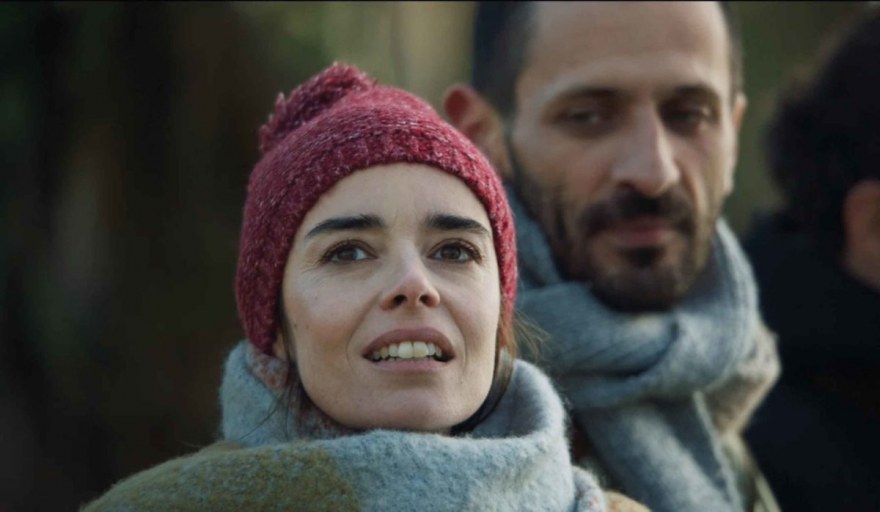Lunch with Roberto le canari
An interview with Nathalie Saugeon, director of Roberto le canari
Can you tell us about the origins of Roberto le canari?
The day my son’s canary died, he was devastated. I felt a huge gap between his sorrow –true mourning – and my pragmatism: what should we do with this canary? Should we burry him? It was both funny and upsetting and that made me ask myself about my own perception of death. In this 20-minute film and with the same starting point, I wanted to explore the different kinds of mourning that can coexist in a household.
Many elements of the film are simply suggested. Was it important to leave certain parts implicit to the spectators, let them guess?
I like the notion of the inferred in cinema, being able to read between the lines and then not always deciphering the same thing as my neighbor… And that’s in fact what I wanted to do in this film.
How would you qualify the impending death of the couple? Although the situation is trying, they exude a certain serenity and strength.
The theme of death has always fascinated me, not in a dark way but as a counterpart. Where there’s death, there’s life. I couldn’t talk about death without the quest for life and something radiant, too. But what I didn’t count on when finishing the scenario, is that the film would be above all a love story. Up until now I didn’t feel inclined to write love stories but preferred to live them and I convinced myself that I would attempt that later. And here we are.
How did you discuss the film’s subject with your young actor who plays Max, the couple’s son?
Keanu – who plays Max – is only 7. I preferred to stick to his concerns: “It’s the story about a little boy who’s canary dies.” Keanu’s parents, who were true allies on the project, had read the scenario; I left it up to them whether or not to tell him the whole story. But I didn’t think it was necessary to go that far, I wanted to tell the actor only what his character knew, not more. The same for the script: the less he knew, the better it was for his spontaneity. And seeing as he had a phenomenal memory… Anyways, Keanu was a bright and curious child and quickly came around to asking adult questions. I simply answered him based on the principle that when a child asks a question, he is capable of hearing the answer.
Would you say that the short film format has given you any particular freedom?
When I was writing Roberto le canari, I already had a feature-length film project (L’été avant demain, currently in funding.) I drew up a brief of what I wanted to portray in the short even though the story and the characters had nothing to do with it. I wanted to work on the adult/child relationship, on a sort of loneliness together and also on sensuality. Elsa’s “monologue” was part of this approach and I didn’t want anything to appear contrived; everything depended on the actress I had chosen: Elodie Bouchez. I like the way she assimilates the text, varying the pace, throwing herself into it with an instinctive spontaneity… Recounting these three forms of mourning in 20 minutes was a challenge. It seems like a constraint, but for me it was freedom.
Roberto le canari was shown in the National Competition.









